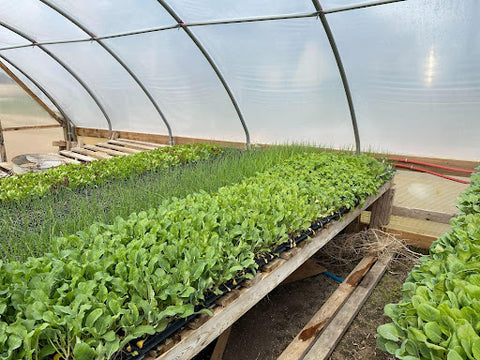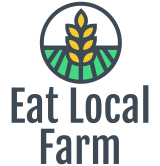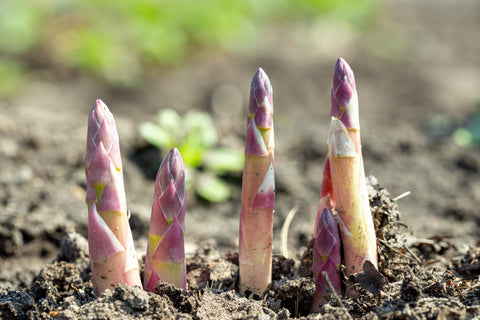Supplier Spotlight
Getting to know the awesome artisans, growers, and producers throughout Norfolk County and beyond.
Series #1

Shola Ekperigin
My Sweet Sweet World, Hagersville, Ontario
May 2022

Chocolate making in Haldimand county! Bringing the finest cacao beans from Edo State, Nigeria. Shola Ekperigin infuses chocolate with the most authentic local flavours and local ingredients. His chocolate is produced year-round and available in-store and at many locations throughout Haldimand-Norfolk.
Chocolate is made from roasted and ground cacao Nibs. Cocoa beans are roasted, then they are cracked and winnowed to remove the outer shells or husks. The pieces of cocoa beans without the husks are called Nibs. Nibs can be ground to produce cocoa mass, or chocolate liquor, which can then be processed into its two components cocoa solids and cocoa butter.

One of the best features of My Sweet Sweet World chocolate is the usage of raw and local ingredients rather than artificial flavorings and emulsifiers. The Beans are roasted and processed right in Hagersville on Main Street! The raw beans are imported directly from Edo, his maternal home state in Nigeria. The cocoa farm where the beans are grown is an independent family owned small farm rather than a multinational corporation.
We had the opportunity to meet with Shola last month and were amazed by the great flavors, such as Matcha Green Tea, Masala Chai, and Mint chocolate with a real mint tea.


Q: Could you tell us a little bit about your journey into chocolate making?
The decision to become a self taught chocolate maker was an act of protest. I wanted to become a confectionery wholesaler and so I started to pay attention to food ingredients for the first time. I simply could not understand why many chocolates used unnecessary ingredients like emulsifiers, preservatives, food coloring and an unbelievable amount of sugar. I decided to teach myself to make chocolates and create my own recipes. As a matter of company principle, I use ONLY real ingredients that are necessary part of the chocolate.
Q: What are some of the local ingredients you have made chocolate with?
I am always looking for new ways to partner with local farms and businesses.
Our famous Strawberry chocolate, made with ONLY real strawberries, comes exclusively from the Haskett farms in Norfolk. We freeze-dry the berries ourselves in-house.
We also buy our organic coconut from a processing factory in Haldimand-Norfolk.
Our Masala Chai and Mint teas are supplied exclusively by a local small business tea supplier.
We also get our Milk powder from a family run independent farm from Winnipeg, where my wife was raised.
Our Hazelnut coffee is made with coffee that is roasted and supplied by a Caledonia based Artisan coffee roaster.
We are currently working on a couple of new products that will include new products from local farms.
Q: What are the most popular flavors?
We currently carry eleven unique chocolate flavours, from white chocolate based to a keto friendly, sugar free 80% dark. We have vegan darks and a variety of milks. We have found that every flavour is popular but everyone’s taste is different.
Q: Are there any other novel chocolate flavors up the pipeline
We are now looking to diversify our product line and offer our customers new ways to enjoy our chocolates. We are working on new cocoa based products and will be launching them soon. Stay tuned to our social media to keep posted our latest product launch
Q: Is there anything else you would like people to know about you?
I was born and raised in Warri city in Nigeria.
I have a very ethnically diverse family; my kids are Nigerian-Chinese-Canadian. Intercultural harmony is something I strongly believe in. I believe that as different as we look and sound, we are one. This is reflected in the designs of my chocolate packaging and it's why we have positive words in various world languages on the bars. Our own little way of spreading positivity to the world.

https://www.mysweetsweetworld.com/
https://www.instagram.com/mysweetsweetworld/?hl=en
Series #2
Greg Boyd
Heritage Lane Produce, Langton, Ontario
June 2022



Aquaponics is a sustainable method of production, which couples hydroponics (growing plants in water) with aquaculture (raising aquatic animals). The highly nutrient rich (especially nitrogen-containing) water created by the fish production is fed to the plants. This almost completely closed system results in a drastic reduction (98%) in water usage compared to conventional methods. In addition, very few nutrients or minerals need to be added to the growing medium for the lettuce. Greg is a pioneer in this field in Norfolk County and has developed a small yet productive operation. The aquaponics system is operational typically from March-November, and during this time, lettuce and tilapia are grown simultaneously.


In addition to his aquaponics operation, Greg also produces a variety of leafy greens, including kale, mustard greens and spinach, as well as other vegetables such as, broccoli, beets, carrots, leeks, and a unique variety of spring onion.

We had the pleasure of meeting Greg at his farm last month and were very impressed by the high quality of all of his products. We had the opportunity to ask Greg a few questions about Heritage Lane and its operations.

Q: Why did you choose to develop aquaponics in Norfolk County?
We struggled with field production of head lettuce due to wildlife damage and adverse weather conditions so we originally looked at hydroponic production in a greenhouse. We however found it difficult on a small scale to manage an hydroponic system where all nutrients need to be added to the water in the correct concentration. We came across a story from the CBC about an aquaponics system being operated by the Mississauga food bank and thought that perhaps that would be a solution to the nutrient problems we experienced with a small-scale hydroponic system.
Q: What are the additional nutrients that have to be added to the system for optimal plant growth?
We add iron as fish food doesn’t contain iron. When conditions are right for rapid lettuce growth we also supplement with potassium sulfate and regulate water pH with lime. The nutrients derived from the fish provide a base constant supply of nutrients, we just have to top up when lettuce growth exceeds that being supplied naturally.
Q: Do you use fertilizer and pesticides for your conventional crops?
We use conventional fertilizer supplemented with composted cattle manure for our field crops. We don’t use insecticides or fungicides on the field crops but do use some herbicides for weed control as the amount of hoeing and cultivating that is required exceeds the amount of labour that I am able to find and is far too costly to be feasible at the scale that we are at.
Q: How does your farm contribute to the local economy?
We employ people strictly from the local community, whether they are students or recent graduates. 75% of our production is also marketed and sold within a 30 minute drive radius of the farm so customers' food dollars are being spent supporting a local farm business which in turn helps to support the services that the business utilizes in the community.
https://heritagelaneproduce.com/

